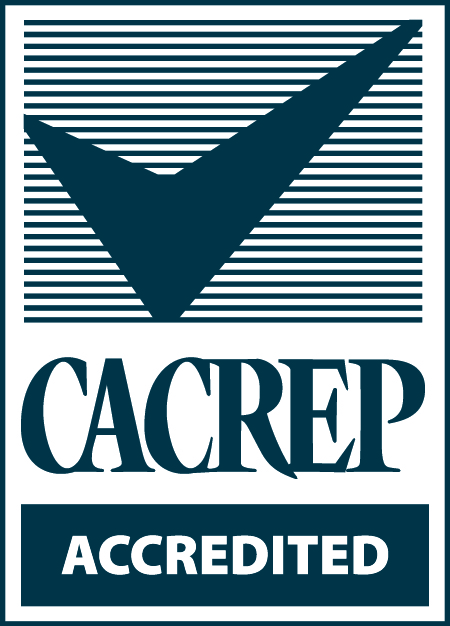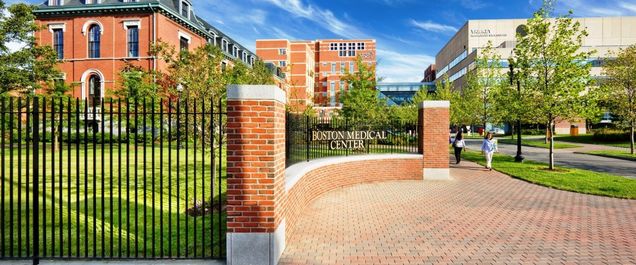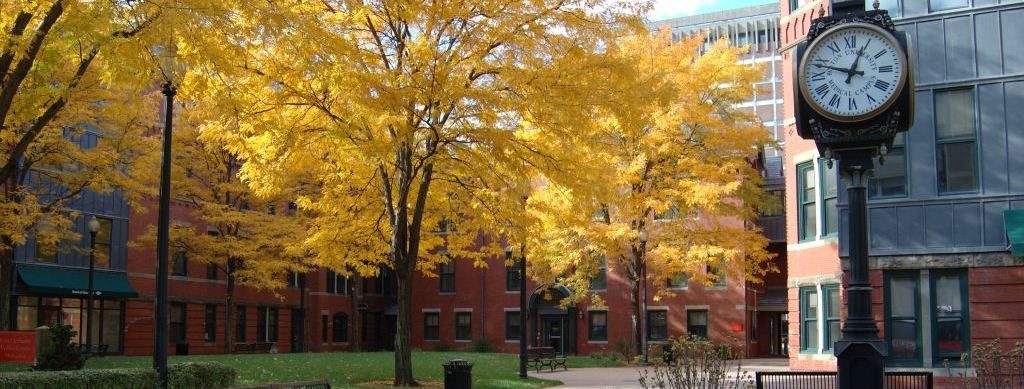About Us
2 years
full-time | in-person
boston university medical campus
 The Mental Health Counseling and Behavioral Medicine (MHCBM) Program is the only accredited program that is housed in a medical school. Our emphasis on behavioral medicine and neuroscience makes us unlike any other counseling program. The two-year intensive program prepares graduates for mental health counseling licensure in Massachusetts and in other states. The program is accredited by the Council for Accreditation of Counseling & Related Educational Programs (CACREP)
The Mental Health Counseling and Behavioral Medicine (MHCBM) Program is the only accredited program that is housed in a medical school. Our emphasis on behavioral medicine and neuroscience makes us unlike any other counseling program. The two-year intensive program prepares graduates for mental health counseling licensure in Massachusetts and in other states. The program is accredited by the Council for Accreditation of Counseling & Related Educational Programs (CACREP)
Clinical Training
Our two-year, 60-credit counseling program offers unparalleled clinical training opportunities in and around greater Boston, including placements at the Veterans Affairs, Boston Medical Center, college counseling centers, trauma counseling and refugee centers, integrated primary care, emergency departments, forensic settings, and prisons. Treatment centers for substance use and eating disorders, inpatient settings, and clinical research teams, to name a few. Students complete a semester-long practicum and a year-long internship as part of their clinical training. They also receive rigorous training in mental health assessment and diagnosis, counseling theory and application, and are exposed to a wide array of client populations and career paths. Our passionate and caring faculty and staff deliver a counseling curriculum that incorporates coursework in behavioral medicine, neuroscience, and psychopharmacology.
Program Outcomes
Each year, graduates of the MHCBM Program are exceptionally well-prepared for employment in mental health counseling positions across the United States and internationally. The following outcomes attest to their success:
- 92.3% completion rate (Class of 2021, 2022, & 2023)
- 100% pass rate on credentialing exams
- 100% worked in mental health counseling positions with 6 months after graduation
Career Paths
We work closely with students to ensure that they meet requirements for licensure in states all across the country. Graduates of our mental health counseling program have secured a wide range of positions, such as:
- Trauma counseling
- Counseling in an integrated care setting
- Counseling individuals seeking to make health-related lifestyle changes
- Counseling for school aged children and adolescents
- Counseling children and adults in a day treatment/partial hospital program
- Counseling sexual offenders in a corrections prison system
- Substance use counseling
- Private practice counseling
- Member of a clinical research team
- Director of an eating disorders residential facility
- Clinician in a college counseling center
We work hard to remain connected to our alumni and facilitate connections and networking between current students and alumni through LinkedIn and in-person events. Alumni offer advice about licensure in other states, the licensing exam, and pursuing other educational opportunities. Many of our alumni are in supervisory and/or administrative positions and often hire graduates from our program.
Mission
Since its inception, the MHCBM Program at Boston University Chobanian & Avedisian School of Medicine has educated and trained hundreds of mental health counselors with a core academic and clinical curriculum aligned with professional standards recommended by the American Mental Health Counselors Association (AMHCA) and American Counseling Association (ACA).
The mission of the MHCBM Program is to educate and train future clinical mental health counselors to help enhance the health and wellness of individuals with diverse identities and backgrounds. The Program’s curriculum emphasizes best practices for counseling approaches across behavioral healthcare and integrated care settings that serve varied cultural and clinical populations and promote healthcare equity. Accredited by the Council for Accreditation of Counseling & Related Educational Programs (CACREP), the Program places great value on excellence, diversity, integrity, social justice, advocacy, collegiality, equity of opportunity, and transdisciplinary collaboration.
The MHCBM Program’s objectives are to:
- Instill in students the knowledge, skills, attitudes, and values that uniquely embody clinical mental health counselors
- Educate and train students of varied backgrounds, identities, and experiences as part of a vibrant learning environment that reflects the diverse communities in which they will be working
- Prepare students for the process to become licensed to practice as mental health counselors within the healthcare workforce
Our program offers theoretical, experiential, clinical, and research-supported activities related to clinical mental health counseling with adults, adolescents, and children on the medical campus as well as in community settings. We accept and educate a broad range of outstanding and diverse students who seek careers as clinical mental health counselors.
Graduates of the MHCBM Program generally become independently licensed and are trained to work in settings where traditional mental health counseling interventions can be informed by evidence-based practice, an understanding of neuroscience, and strategies to address physical illness and health promotion.
Accreditation
Since 2014, the MHCBM Program has been accredited by the Council for Accreditation of Counseling & Related Educational Programs (CACREP). We have since renewed this accreditation through March 2031. Our counseling program is among a select few in the United States to receive an eight-year accreditation after the first attempt and is only one of a handful of programs in New England accredited for clinical mental health counseling.
Benefits for students who graduate from a CACREP-accredited counseling program include the following:
- Some states require graduation from a CACREP-accredited counseling program for licensure
- Graduates from CACREP accredited counseling programs experience fewer barriers to transferring a license from one state to another
- National Board for Certified Counselors (NBCC) permits students from CACREP-accredited counseling programs to take their licensure exam while in graduate school
- US Department of Veterans Affairs (VA) recognizes only licensed counselors who graduated from a CACREP-accredited clinical mental health counseling program as approved providers
- National Board for Certified Counselors (NBCC) will soon require graduation from a CACREP-accredited counseling program in order for eligibility for national certification
- American Counseling Association (ACA) and the Institute of Medicine (IOM) both identify CACREP as the sole accrediting body for counselor education
All counseling programs accredited by CACREP have successfully passed evaluation for content and quality standards set forth by the mental health counseling profession. Specific to curricular experiences, the MHCBM Program requires completion of counseling coursework across the eight core CACREP areas:
- Professional counseling orientation and ethical practice
- Social and cultural identities and experiences
- Lifespan development
- Career development
- Counseling practice and relationships
- Group counseling and group work
- Assessment and diagnostic processes
- Research and program evaluation
Our counseling program also provides education and training in knowledge and skills/practices across CACREP domains unique to clinical mental health counseling, including behavioral healthcare service delivery modalities and networks within the continuum of care.
Mental Health Counseling and Licensure in Massachusetts
The American Mental Health Counselors Association defines mental health counseling as:
…the provision of professional counseling services involving the application of principles of psychotherapy, human development, learning theory, group dynamics and the etiology of mental illness and dysfunctional behavior to individuals, couples, families and group, for the purpose of threading psychopathology and promoting optimal mental health. The practice of mental health counseling includes, but is not limited to, techniques aimed at the prevention of such disorders, consolations to individuals, couples, effective psychotherapeutic treatment modalities.
The Commonwealth of Massachusetts licenses mental health counselors (LMHCs) who have met the education and training criteria set by the Board of Registration of Allied Mental Health and Human Services Professions of the Bureau of Health Professions Licensure. LMHCs are prepared to assist clients to cope with a wide variety of behavioral health problems and related concerns, some of which include:
- Anxiety and phobias
- Mood disorders
- Child and partner abuse
- Family conflict
- Drug and alcohol use
- Trauma recovery
- Bereavement
- Career issues
Since its inception, the Mental Health Counseling and Behavioral Medicine Program at Boston University School of Medicine has educated and trained hundreds of mental health counselors with a core academic and clinical curriculum aligned with professional standards recommended by the American Mental Health Counselors Association (AMHCA) and American Counseling Association (ACA).
Unique Program Attributes
Our program is unlike any other counseling program in the country for a variety of reasons, including:
- Only program in the United States that is both located within a nationally-ranked medical school/academic teaching hospital and accredited by the Council for Accreditation of Counseling and Related Educational Programs (CACREP)
- Unparalleled number and types of clinical training opportunities in and around greater Boston
- Caring and dedicated transdisciplinary faculty and staff
- All core teaching faculty are active clinicians, providing them with direct, up-to-date exposure to the “real world” of clinical service
- Many of our teaching faculty are also actively engaged in research and contribute to the scientific understanding of a variety of issues.
- Curriculum that incorporates coursework in behavioral medicine, neuroscience, and psychopharmacology
Why Choose a CACREP-Accredited Program?
Benefits for students who graduate from a CACREP-accredited program include the following:
- Some states require graduation from a CACREP-accredited program for licensure
- Certifications and licenses are more portable and reciprocal across states
- US Department of Veterans Affairs (VA) recognizes only licensed counselors who graduated from a CACREP-accredited program as approved providers
- National Board for Certified Counselors (NBCC) will soon require graduation from a CACREP-accredited program in order for eligibility for national certification
- American Counseling Association (ACA) and the Institute of Medicine (IOM) both identify CACREP as the sole accrediting body for counselor education
All programs accredited by CACREP have successfully passed evaluation for content and quality standards set forth by the mental health counseling profession.
Why Choose a Counseling Program?
Mental health counselors are trained to assess, diagnose, and provide psychotherapy to clients with a variety of mental health-related issues, including depression, substance use, trauma, and others. Mental health counselors provide individual, couples, family and group counseling to individuals across the lifespan, including children, adolescents, parents, adults, and older adults. Mental health counselors often conceptualize client problems from a developmental lens, and incorporate wellness-based lifestyle interventions into their treatment approach. They practice in a variety of settings, including community agencies, integrated healthcare, hospitals, private practice, and substance use treatment centers.
Counselors may practice independently (i.e., without supervision) once they have obtained a professional license in the state where they practice. Licensure requirements vary among states, and are roughly equivalent for clinical social workers and marriage and family therapists (e.g., a master’s degree, post-graduate supervised experience, passing a licensure exam).
Mental health counseling is unique from other related professions in that counselors tend to:
- take a flexible person-centered approach that meets the unique needs of the client they are working with,
- emphasize and respect the importance of multiculturalism and cultural background when working with clients,
- place emphasis on counselor development during clinical supervision in addition to client-related issues.
What is Behavioral Medicine?
According to the Society of Behavioral Medicine, it is the
“interdisciplinary field concerned with the development of and integration of behavioral, psychological, and biomedical science knowledge and techniques relevant to the understanding of health and illness, and the application of this knowledge and these techniques to prevention, diagnosis, treatment, and rehabilitation.”
Our mission is that our clinical mental health students graduate from our program with a foundational knowledge in common medical disorders, medical terminology, and strategies clinical mental health counselors can utilize to prevent and treat medical illness. The behavioral medicine degree program prepares graduates to work in a collaborative fashion with multidisciplinary teams, to communicate credibly with medical providers and to provide clients with support in preparation for medical tests and procedures, diagnostic trajectories, and supportive care. Our graduates learn to incorporate assessment techniques that may assist in detecting symptoms attributable to medical disease and to attend to the biopsychosocial model throughout the course of care.
Licensure Preparation
The Mental Health Counseling and Behavioral Medicine Program is a two-year Master of Arts program designed to meet the educational requirements for licensure as a Mental Health Counselor in the Commonwealth of Massachusetts as granted by the Massachusetts Board of Allied Mental Health Professions. We work closely with students to ensure that they meet requirements for licensure in states all across the country. For more information about how the MHCBM program prepares students to meet educational requirements for licensure in all U.S. states, please visit this link.
Boston Medical Center
The Mental Health Counseling and Behavioral Medicine program is located on the campus of Boston Medical Center (BMC) at Boston University’s Chobanian & Avedisian School of Medicine. BMC is a large safety-net hospital with a mission of providing “exceptional care without exception.” As one of the most diverse hospitals in New England, both in student-body and patient population, BMC serves as a site for many of our clinical training placements for Mental Health Counseling and Behavioral Medicine students.

Living in Boston
Boston University’s Chobanian & Avedisian School of Medicine and Boston Medical Center are in the heart of Boston’s diverse and thriving South End community, a community including large numbers of young professionals, people of color, and the LGBTQ+ community. It is also well known for its restaurants and is at the center of Boston’s ever-evolving “foodie” scene.
Home to more than 35 colleges and universities and over 150,000 students, Boston is a dynamic city to explore with many venues for entertainment and culture appealing to graduate students. Boston is one of the more ethnically diverse cities in the US and the Boston University community provides you with global education. The majority of linguistic minorities, immigrants, and refugees in New England also live in the Metropolitan Boston area. Our diversity creates a vibrant and supportive context in which to be a graduate student in counseling.
Boston is rich in history, culture, sports, and innovation, including history and world-class theatre, art, music, and dance. With so much to do here, Boston has earned the nickname of “The Hub” (it is also known as “America’s Walking City” and “Beantown.”) Boston also has many of the best sports teams in the United States—although some of you may beg to differ!

Contact Us
Address:
72 East Concord Street
Robinson Bldg, Suite B-212
Boston, MA 02118
Phone: 617-358-5462
Fax: 617-358-5481
Email: mhcbm@bu.edu
Social Media:


